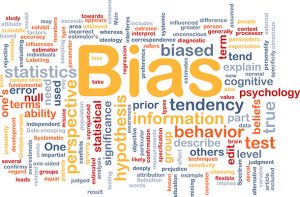 A judge in the Southern District of New York recently denied a motion to dismiss in a discrimination case filed by a secretary at Biglaw firm Quinn Emanuel. Marin v. Quinn, Emanuel, Urquhart & Sullivan LLP, SDNY Index No. 17 CV 5488 (VEC). The decision in this case made legal news, but not so much because it is yet another discrimination claim against Biglaw. It was newsworthy because a key argument made by the defendants in support of their motion was that a supervisor’s use of the “N-word” was just a bad joke and was not evidence of discriminatory animus. This seems to have annoyed the judge (my characterization, not hers, and maybe a bit of an understatement). That the motion to dismiss the complaint was denied is not unusual or unexpected. Motions at the pleading stage are often denied because much less is required to plead a viable claim in a complaint than is ultimately required to survive summary judgment or prevail at trial. Additionally, discrimination cases can be fact intensive and if a claim meets the bare minimum standard, usually discovery and depositions are necessary before there is enough information (or lack thereof) to convince a court to dismiss it.
A judge in the Southern District of New York recently denied a motion to dismiss in a discrimination case filed by a secretary at Biglaw firm Quinn Emanuel. Marin v. Quinn, Emanuel, Urquhart & Sullivan LLP, SDNY Index No. 17 CV 5488 (VEC). The decision in this case made legal news, but not so much because it is yet another discrimination claim against Biglaw. It was newsworthy because a key argument made by the defendants in support of their motion was that a supervisor’s use of the “N-word” was just a bad joke and was not evidence of discriminatory animus. This seems to have annoyed the judge (my characterization, not hers, and maybe a bit of an understatement). That the motion to dismiss the complaint was denied is not unusual or unexpected. Motions at the pleading stage are often denied because much less is required to plead a viable claim in a complaint than is ultimately required to survive summary judgment or prevail at trial. Additionally, discrimination cases can be fact intensive and if a claim meets the bare minimum standard, usually discovery and depositions are necessary before there is enough information (or lack thereof) to convince a court to dismiss it.
So then why was this case noteworthy? Perhaps the judge’s reaction to the “it was a bad joke, but just a joke” argument is one reason. Another less obvious reason is that the optics always matter. In today’s diversity landscape of implicit bias, #metoo, and heightened racial tensions, use of that word just cannot be characterized as a joke — good, bad or otherwise. Let’s be clear, use of that word, especially in an employment setting, is never a joking matter. When counsel tries to argue it away as a joke, it just looks bad.
Perhaps the real story here is that implicit bias is an important issue that cannot be ignored in either employment settings or legal arguments. One of the effects of implicit bias is that the person at whom the bias is directed may perceive bias where someone else may just see harmless behavior, a neutral comment, or joke. Some more obvious examples of this are when a non-Latino person immediately assumes that English is not their Latino colleague’s primary language or that you must love hip hop but not opera because you are black. Maybe less obvious (but not really) was yet another argument used in the Quinn Emanuel case. Counsel argued that there is nothing wrong with a supervisor asking a black employee if they have ever been arrested because that might just be a sign of “solidarity” in “this time of Black Lives Matter.” A little more thought about how that last example looked, or rather, sounded to a person of color might have also made counsel realize that it would not convince the Judge to rule in their favor anymore than their ill-considered “N-word” argument.

7 Key Trends In Law Firm Rate Negotiations
And how to navigate them in 2026.
Litigators are human, though some loathe to admit that. Sometimes we forget that it is always important to see and appreciate the perspective of your opponent as clearly as your own. In matters where implicit bias is a factor, you must consider carefully that what may not be significant to you and your client may be important and even offensive to someone who is not like you, and you must be cautious about how you deal with those facts. In the end, Quinn Emanuel may prevail in this case, and I do not wish to comment on the merits of the claim. That said, persuasion is key in any litigation. Ignoring the potential impact of implicit bias, and the optics of arguments that simply highlight that bias is a risky and unpersuasive way to litigate in “this time of Black Lives Matter.”
 Christine A. Rodriguez is of counsel to the firm Balestriere Fariello and successfully represents individuals and small businesses in all manner of employment discrimination, civil rights, criminal defense, civil litigation and commercial litigation matters. She also advises small businesses on all aspects of legal matters from contract to employee issues. You can reach her by email at christine. a. rodriguez@balestrierefariello. com.
Christine A. Rodriguez is of counsel to the firm Balestriere Fariello and successfully represents individuals and small businesses in all manner of employment discrimination, civil rights, criminal defense, civil litigation and commercial litigation matters. She also advises small businesses on all aspects of legal matters from contract to employee issues. You can reach her by email at christine. a. rodriguez@balestrierefariello. com.